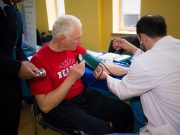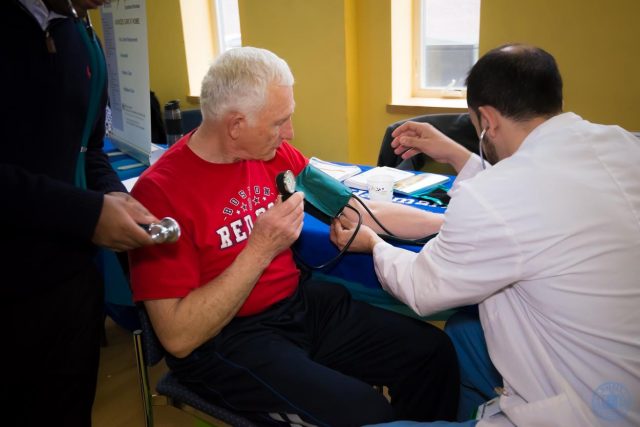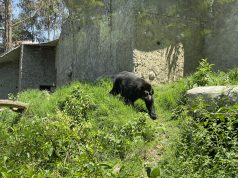As the cold weather sets in, it brings with it a unique set of challenges, especially for seniors. The drop in temperature can exacerbate existing health issues and introduce new risks, making it crucial for caregivers and family members to be proactive in managing the health and well-being of older adults. Understanding the specific needs of seniors during this chilly season is key to ensuring their comfort and safety. In this article, we will explore practical and compassionate strategies to help you navigate the winter months, keeping your loved ones warm, healthy, and secure. Whether it’s safeguarding against the cold or bolstering their immune defenses, these tips are designed to provide peace of mind and enhance the quality of life for seniors as they weather the winter.
Understanding the Unique Health Needs of Seniors in Winter
As temperatures drop, seniors often face a unique set of health challenges that require careful attention and management. The cold weather can exacerbate existing health issues and introduce new risks, making it essential to adopt strategies tailored to their needs. Here are some key areas to focus on:
- Temperature Regulation: Seniors are more susceptible to hypothermia, so maintaining a warm indoor environment is crucial. Ensure the thermostat is set to a comfortable level and encourage wearing layers to help trap body heat.
- Skin Care: Cold air can dry out the skin, increasing the risk of cracks and infections. Moisturize regularly and encourage the use of a humidifier to add moisture to the air.
- Nutrition: A balanced diet rich in vitamins and minerals can help bolster the immune system. Warm meals like soups and stews not only provide nutrition but also comfort during chilly days.
| Concern | Solution |
|---|---|
| Joint Pain | Encourage gentle exercises and warm baths to soothe stiffness. |
| Dehydration | Promote regular fluid intake, even if not thirsty. |
| Loneliness | Arrange regular check-ins or social activities to maintain connections. |
By paying attention to these aspects, caregivers and family members can help ensure that seniors stay healthy and comfortable throughout the winter months. It’s about creating a warm, supportive environment that addresses both physical and emotional well-being.

Creating a Safe and Warm Home Environment for Seniors
Ensuring a safe and warm environment for seniors during the colder months is crucial for their health and well-being. Here are some practical tips to help you manage their comfort effectively:
- Heating Systems: Regularly check and maintain heating systems to ensure they are working efficiently. Consider installing a programmable thermostat to maintain a consistent temperature.
- Insulation: Ensure that windows and doors are well-insulated to prevent drafts. Use heavy curtains or thermal drapes to retain warmth inside the home.
- Clothing: Encourage seniors to wear layers of clothing, which can be adjusted according to their comfort level. Warm socks and slippers are also essential to keep feet cozy.
- Hydration and Nutrition: Offer warm drinks like herbal teas or soups to help maintain body temperature. Make sure they have a balanced diet rich in nutrients to support their immune system.
| Essential Item | Purpose |
|---|---|
| Electric Blanket | Provides additional warmth during sleep. |
| Non-Slip Rugs | Prevents slips and falls on cold, hard floors. |
| Humidifier | Adds moisture to the air, reducing dry skin and respiratory issues. |
By taking these steps, you can create a nurturing environment that supports seniors’ health and comfort, making the winter months more enjoyable and less challenging.

Nutritional and Physical Activity Tips to Boost Senior Immunity
As temperatures drop, it’s crucial to support the immune system of seniors, helping them stay healthy and resilient. Nutritional adjustments and regular physical activity can play a significant role in enhancing immunity. Here are some practical tips:
- Incorporate Immune-Boosting Foods: Encourage a diet rich in fruits and vegetables like citrus fruits, spinach, and broccoli, which are high in vitamin C. Foods such as almonds and sunflower seeds provide vitamin E, another vital antioxidant.
- Stay Hydrated: Seniors should aim to drink plenty of water throughout the day. Herbal teas and warm soups can also help keep them hydrated while providing additional nutrients.
- Regular Moderate Exercise: Gentle activities like walking, tai chi, or yoga can improve circulation and help maintain a healthy immune system. Ensure exercises are safe and tailored to individual capabilities.
To make it easier to incorporate these tips into daily life, consider the following simple meal plan ideas and exercise routines:
| Meal | Suggestion |
|---|---|
| Breakfast | Oatmeal with berries and a sprinkle of nuts |
| Lunch | Spinach salad with grilled chicken and citrus dressing |
| Dinner | Baked salmon with steamed broccoli and quinoa |
Incorporating these strategies into daily routines can greatly assist in bolstering the immune system, helping seniors remain healthy and active throughout the cold months.

Practical Advice for Monitoring and Supporting Seniors Health
Monitoring and supporting seniors’ health during colder months requires a proactive approach. The drop in temperature can exacerbate existing health conditions, making vigilance and care paramount. Here are some effective strategies:
- Regular Check-Ins: Make it a routine to check in with your elderly loved ones. This can be through phone calls, video chats, or in-person visits, ensuring they feel supported and not isolated.
- Temperature Control: Ensure their living environment is adequately heated. The ideal room temperature should be around 68-72°F (20-22°C) to prevent hypothermia.
- Layered Clothing: Encourage wearing multiple layers of clothing to trap body heat. Fabrics like wool and fleece are excellent choices for maintaining warmth.
In addition to these measures, maintaining a balanced diet and staying hydrated are crucial. Cold weather can sometimes diminish the sensation of thirst, so remind them to drink water regularly. Furthermore, ensure they have access to healthy meals that are rich in vitamins and minerals to boost their immune system.
| Key Area | Action |
|---|---|
| Hydration | Encourage 6-8 glasses of water daily |
| Nutrition | Include fruits, vegetables, and whole grains |
| Exercise | Simple indoor exercises to stay active |
Lastly, keep an eye on medications. Cold weather can sometimes affect how medicines work or how they are stored. Make sure their prescriptions are up-to-date and stored as per the pharmacist’s instructions. By taking these steps, you can significantly enhance their comfort and well-being during the chilly season.








































